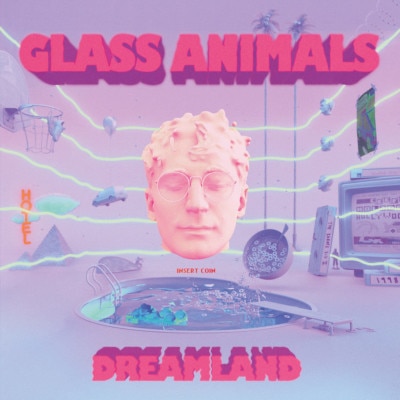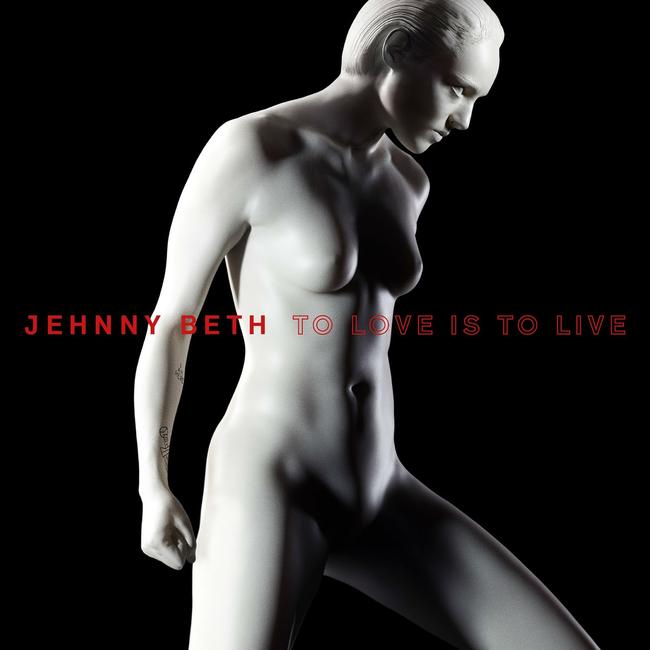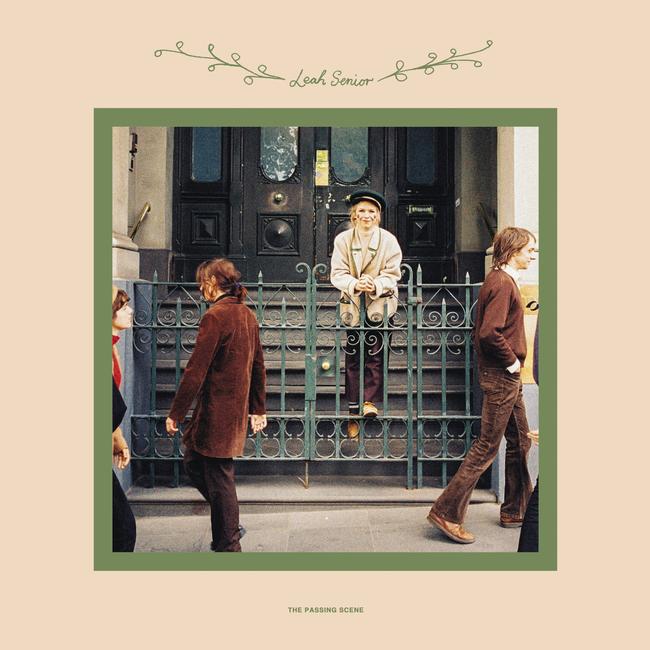An old woman’s fall in the street brought Josh Pyke to tears
The singer-songwriter was riding his bike when he became the first responder. What happened next brought him to tears.

Josh Pyke was heading home after a bike ride in Sydney’s inner west earlier this year when something strange and unexpected happened: right in front of him, an old woman fell over while crossing the street.
The singer-songwriter was the first responder on the scene: he dropped his bike, ran over and picked her up, and took her into a nearby cafe to get some water and wait until a family member arrived.
Throughout the short amount of time they spent together, the old woman was lighthearted about the whole matter. “Don’t worry, love, this happens all the time,” she told him with a laugh. “It’s just what happens when you get old.”
Once her cousin had arrived to take her home, the pair said farewell and Pyke ordered a coffee and pulled out his phone to see an email containing a link to a new music video for a song from Pyke’s forthcoming sixth album Rome.
The video opens with a series of indoor slow-pan shots across old photo albums, ornamental trinkets and a teaspoon collection. The viewer is primed to expect a sad tale of loss and its aftermath, but as the song reaches its chorus, the clip reveals a crafty narrative bait-and-switch: rather than showing the nostalgic memorabilia that’s inevitably left behind after a long life well-lived, the true star of the video is revealed to be Pamela Brown, a gorgeous 91-year-old dancing in a purple tracksuit.
With a beaming smile, Brown plays air piano and trumpet, while in the chorus, Pyke sings, “Some days don’t feel right and you won’t know why / Some years you won’t hold as dear to your heart as the ones you arise / So don’t let it wait ‘til the next time.”
All of this gentle beauty unfolded on Pyke’s phone as he sat inside the cafe, and given the unusual run-in he’d just had with another little old lady, he was soon tearing up at the stunning visual story his collaborators at Mountain Folk Films – creative partners Dimity Kennedy and Jefferton James – had come up with and shot in the space of just a few days; that’s Kennedy’s grandmother in the clip.
“I wrote the song for myself,” Pyke, 42, tells Review in early August.
“There’s certain things that have happened in my life in the last few years that I choose not to talk about, which really informed that particular song. So their interpretation of that song is not the same as mine, but that’s what I’ve always loved about art: the interpretation doesn’t really need to be aligned with the creator.”
The video for Don’t Let It Wait is surely one of the most original and moving pairings of sound and vision to emerge from a bumper year of isolation-related material. But while Pyke lauds the filmmakers’ vision, it hasn’t changed his perception of the work itself.
“I know intimately what that song is about and what issues I was trying to address in my own life, by what that particular song was acting as,” he says. “But I love that a different interpretation could still have a strong emotional impact on me.”
Rome is Pyke’s first album in five years, a period that included a two-year break from performance. The Sydney-based singer-songwriter rose to national prominence in 2005 with Middle of the Hill, a short, stream-of-consciousness song without a chorus that’s rooted in evocative and highly specific memories from his childhood; it still stuns the ear today.
Since then, Pyke has crafted a reputation for writing songs that shine with melodic beauty and lyrical ingenuity. Rome, then, is another sparkling entry in a canon now spanning 15 years: upbeat third track I Thought We Were A River has an indie rock feel built on a wordless, earworm chorus melody that’s among the best things we’ve heard from him. His songwriting credibility is impeccable, but there’s a lesser-known aspect to the man that’s worth highlighting, as Pyke himself tends not to talk it up too much. Since 2014, he’s been running the JP Partnership, which offers unsigned musicians the chance to receive mentorship and funding to further their careers. Pyke contributes $2500 from his own pocket to the annual award, while performing rights body APRA AMCOS chips in $5000.
When contacted by Review, three previous recipients of the JP Partnership – who have since become acclaimed singer-songwriters in their own right – were quick to heap praise on Pyke, and it’s worth letting them have the last word.
“This prize was a big milestone for me: an affirmation from a successful artist that I was writing good songs and had a plausible plan for releasing music,” says Angie McMahon, who won in 2017. “Sometimes it can feel hard to get a foot in the door in the industry, so the support from Josh and his team was really lovely.”
For Sophie Payten – who recently released her second album Our Two Skins under the stage name Gordi – the partnership was helpful in terms of providing useful, practical advice.
“Someone as successful as Josh has an abundance of wisdom to offer,” she says. “The funding meant I could afford to make an EP and as a result, I signed some record deals and launched my career. I have a lot to thank Josh for.”
Melbourne musician Alex Lahey describes winning the prize in 2016 as a cornerstone moment at the beginning of her career.
The $7500 helped with national touring, but even better was the enduring relationship the pair built.
“He has provided me with so much guidance during pivotal decisions that I’ve had to make along the way,” says Lahey. “He’s an incredibly warm and kind person and is developing an extraordinary legacy, both as an artist and as a patron of the future of Australian music.”
Rome is released on Friday, August 28 via Wonderlick/Sony Music. Josh Pyke’s tour begins in Brisbane (October 1 and 2) and ends in Sydney (Oct 28, 29 and 30).
Album reviews for week of August 22, 2020:

INDIE POP
Dreamland
Glass Animals
Wolf Tone/Universal
★★★
Where previous releases from this English quartet were focused on the lives of others, album No 3 offers refreshingly vulnerable introspection. A traumatic period for the band – which included a horrific road accident involving drummer Joe Seaward in 2018 – saw singer, songwriter and producer Dave Bayley deciding to try writing autobiographically. These 16 nostalgia-laced tracks are intercut with audio excerpts of home videos from his childhood, while his staple breathy voice – often accompanied by pleasing harmonies – sings frank and self-examining lyrics that aptly capture the absurdity of life within a prism of memory. The band members are no strangers to excavating woozy and intoxicating soundscapes, and Dreamland is no exception. But where the 2016 release How To Be A Human Being ambitiously pushed the boundaries of experimentation and sound manipulations, this album is more subdued. Tangerine buzzes with fizzing beats against lyrics about a relationship breakdown, while Domestic Bliss is a spacious exploration of abuse: “Maybe it tastes like him when you’ve got tears on your lips”. On the melancholic It’s All So Incredibly Loud, Bayley sings about the silence that follows hurtful words – “whispers would deafen me now” – over a sea of synths that build to an ironically deafening crescendo. Space Ghost Coast to Coast is a gritty track with popping bass and alien-like vocal manipulations, while overall, Dreamland is an intriguing and at times harrowing listen that leaves one wondering where the band’s sonic inspiration will come from next.
Emily Ritchie

POST-PUNK
To Love Is To Live
Jehnny Beth
Caroline Australia
★★★½
Jehnny Beth is best known for her role as the frontwoman of British rock band Savages. On her debut album, Beth has collaborated with Savages bandmate and ex-lover Johnny Hostile, as well as with Mark “Flood” Ellis and Atticus Ross, aka two of the sonic masterminds behind Nine Inch Nails. “I am naked all the time, I am burning inside,” Beth croons on opening track I Am, a sentiment which holds true for much of the lyrical content here; the revelatory nature of To Love is to Live does feel like she’s taken hints on confessional art from PJ Harvey and Anna Calvi, both of whom she’s toured with. I’m The Man is a fierce romp of machine bleeps and stomping percussion, while Heroine echoes the gothic, ecstatic vocal style of Siouxsie Sioux of the late 1970s post-punk Banshees. A momentous ride through genres gleefully smudged into each other, Beth’s album is much like Savages meets Nine Inch Nails in a Kate Bush dream, and it’s not a bad thing at all.
Cat Woods

FOLK/ROCK
The Passing Scene
Leah Senior
Flightless
Leah Senior’s third solo album variously inhabits the rich realms of pastoral English folk and mid-century bubblegum pop and piano balladry. But those familiar settings don’t weaken the Melbourne songwriter’s appeal, instead proving her adaptability as she turns her hand to jaunty cheeriness (Evergreen) and melancholic undertow (Time Traveller) with equal poise. There’s also a subversive edge to Senior’s lyrics – “We’re the ones who visit the graves of the rock stars” — that combines with her more deadpan vocal turns to favourably recall Aldous Harding. Meanwhile, the self-aware bent of Dreary Day dovetails with the winking subject matter of her other band, Girlatones. Between the softly padding drums and psychedelic guitar tinges, these comfortably understated arrangements work very much in the service of Senior’s shrewd songwriting, subtly influencing each distinct mood swing while we hang on her every lingering syllable.
Doug Wallen

